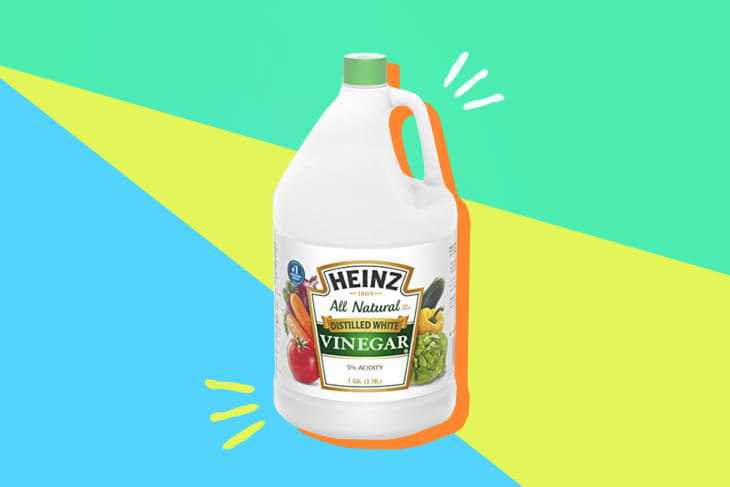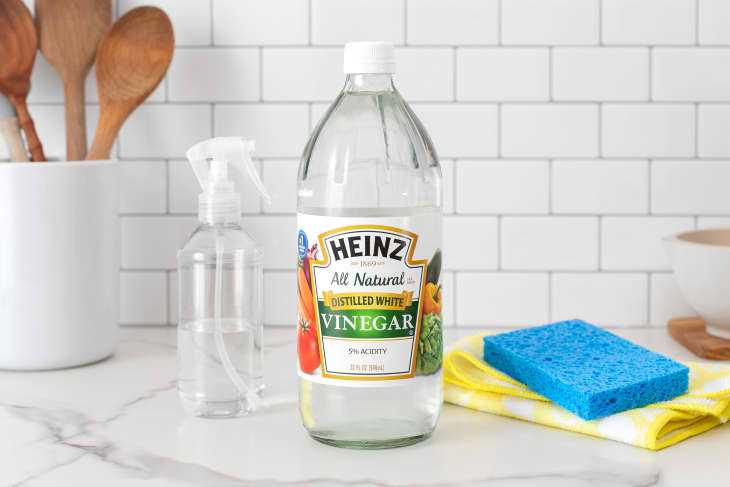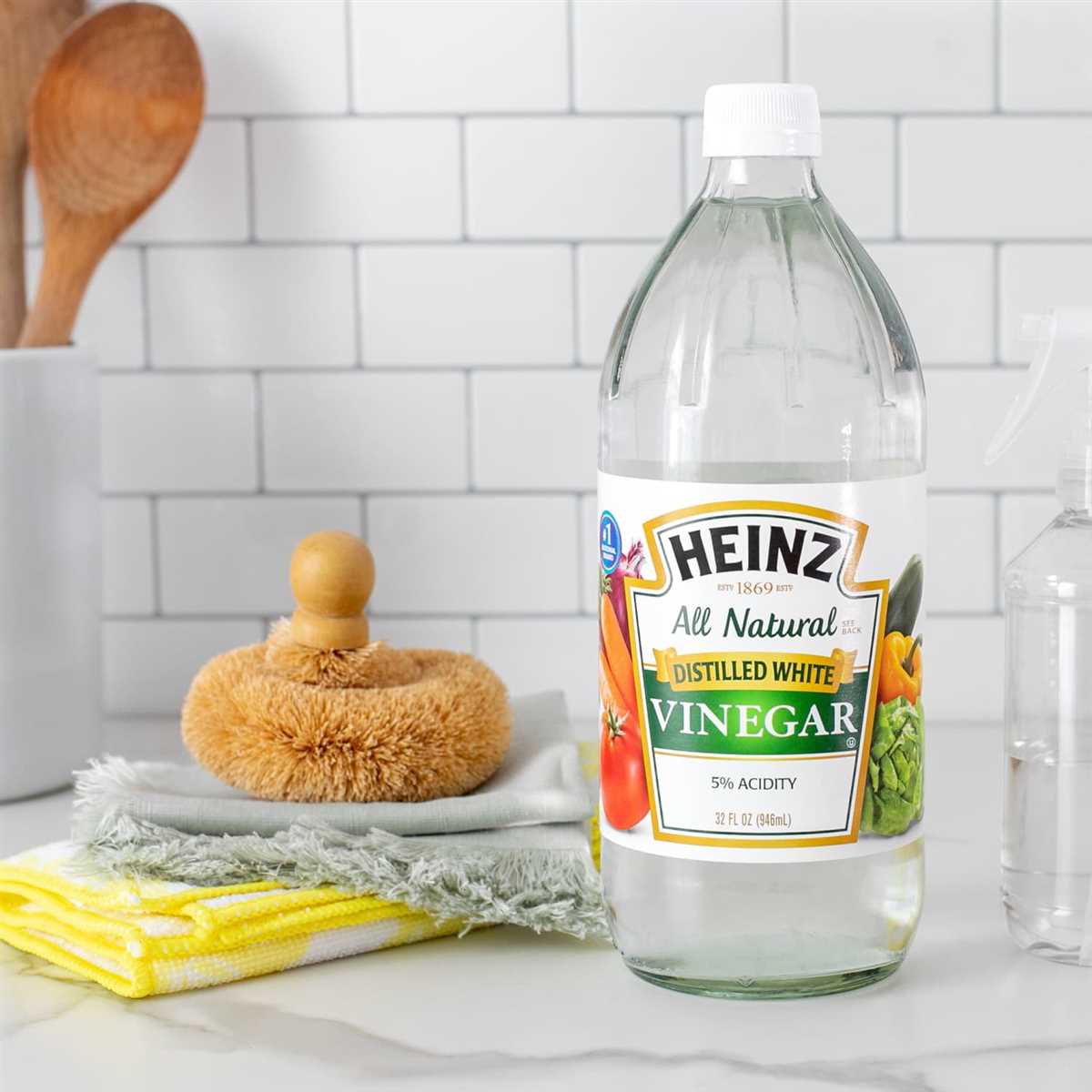
Vinegar is a versatile household product that many people use as a natural cleaner. It’s inexpensive, eco-friendly, and effective at removing dirt, grime, and odors. However, there are certain items and surfaces that you should never clean with vinegar. Using vinegar on these items can cause damage or diminish their effectiveness.
First and foremost, you should never clean electronic devices, such as smartphones, tablets, or computers, with vinegar. The acidity of vinegar can corrode the delicate circuits and components, causing permanent damage. Instead, use a soft cloth dampened with water or a specific electronics cleaning solution.
Another item to avoid cleaning with vinegar is natural stone surfaces, such as granite or marble countertops. The acidity of vinegar can etch and dull the surface, leaving it permanently damaged. Instead, opt for a pH-neutral stone cleaner specifically designed for natural stone surfaces.
Vinegar is also not suitable for cleaning hardwood floors. The acidity can strip away the protective finish and cause warping or discoloration. Instead, use a mild soap or a cleaner specifically formulated for hardwood floors. Additionally, avoid using vinegar on cast iron cookware, as it can strip away the seasoning and cause rusting.
In conclusion, while vinegar is a useful cleaning agent, it’s important to know what not to clean with it. By avoiding these nine items and surfaces, you can prevent damage and keep your belongings in excellent condition.
Disclaimer: The information provided in this article is for educational purposes only. This website and the author shall not be held liable for any damage caused by the use of vinegar on the items mentioned above.
Why You Shouldn’t Clean These 9 Things with Vinegar
1. Stone Countertops
Vinegar is acidic and can damage the sealant on stone countertops, causing them to become dull and lose their shine over time. Instead, use a pH-neutral cleaner specifically designed for stone surfaces.
2. Hardwood Floors
Using vinegar on hardwood floors can strip away the protective finish and leave them looking dull. It’s best to use a cleaner specifically formulated for hardwood floors to maintain their beauty and longevity.
3. Electronics
Vinegar is corrosive and can damage the delicate components of electronics. Avoid using vinegar to clean your devices and opt for manufacturer-recommended cleaning agents instead.
4. Irons
Vinegar can clog the steam vents and damage the internal components of irons. It’s recommended to use distilled water for iron cleaning to prevent mineral buildup and maintain the performance of your iron.
5. Egg Stains
While vinegar can help remove many stains, it actually makes egg stains coagulate and become more difficult to remove. Use soap and water to clean up egg spills instead.
6. Bronze and Pewter
Vinegar can react with the metal in bronze and pewter, causing them to tarnish and lose their shine. Instead, use a gentle metal cleaner specifically designed for these materials.
7. Marble
Similar to stone countertops, vinegar can damage the sealant on marble surfaces and cause them to become dull. Stick to pH-neutral cleaners made specifically for marble to keep it looking pristine.
8. Cast Iron Cookware

Using vinegar on cast iron can strip away the seasoning and protective layer, leaving it vulnerable to rust. Clean cast iron with a mild dish soap and water, then apply a thin layer of oil to protect it.
9. Hard-Water Stains
Vinegar is commonly recommended for removing hard-water stains, but it may not be effective on severe or long-standing stains. In these cases, it’s best to use a commercial descaler or consult a professional cleaner.
In conclusion, while vinegar is a versatile and effective cleaning agent for many things, it’s important to avoid using it on certain surfaces. Always check manufacturer recommendations and use the appropriate cleaners to ensure the longevity and beauty of your belongings.
Electronics and Appliances
Vinegar is a versatile cleaning agent that is safe to use on many surfaces, but there are some electronics and appliances that you should avoid cleaning with vinegar:
- Computer screens and LCD displays: Vinegar can damage the special coating on these screens. Instead, use a microfiber cloth or a screen cleaner specifically designed for electronic devices.
- Cellphones and tablets: The acidic nature of vinegar can harm the delicate touchscreen of these devices. It is best to use a gentle, alcohol-free cleaner to wipe them down.
- Printers and scanners: The internal components of printers and scanners are sensitive and can be damaged by vinegar. Always follow the manufacturer’s instructions for cleaning these devices.
- Appliance control panels: Vinegar can strip away the protective coatings on control panels, causing them to deteriorate over time. Use a mild soap and water solution instead.
Remember, when it comes to cleaning electronics and appliances, it’s always a good idea to refer to the manufacturer’s instructions or consult a professional if you are unsure.
Stone Countertops and Floors
Stone countertops and floors, such as granite or marble, are a popular choice for many homeowners due to their durability and elegant appearance. However, when it comes to cleaning them, vinegar should be avoided.
Why Not to Clean Stone Countertops and Floors with Vinegar?
Vinegar is an acidic substance, which means it has a pH level below 7. This acidity can etch and dull the surface of stone countertops and floors over time. The acidity in vinegar can react with the calcium carbonate found in many types of stone, leading to permanent damage and discoloration.
Alternative Cleaning Methods for Stone Countertops and Floors
Instead of using vinegar, it is best to clean stone surfaces with a pH-neutral cleaner specifically designed for use on stone. These cleaners are gentle enough to remove dirt and grime without causing any damage. Additionally, using a soft cloth or mop and avoiding abrasive scrub brushes will help prevent scratching.
Tips for Maintaining Stone Countertops and Floors
Here are some tips to maintain the beauty and longevity of stone countertops and floors:
- Avoid placing hot pots or pans directly onto the stone surface as it can cause thermal shock and crack the stone.
- Wipe up spills immediately to prevent staining.
- Use cutting boards and trivets to protect the stone surface from scratches and heat damage.
- Regularly seal the stone countertops and floors to protect them from stains and moisture penetration.
- Avoid using harsh or abrasive cleaners that can damage the stone.
By following these tips and avoiding vinegar as a cleaning agent, you can keep your stone countertops and floors looking beautiful and well-maintained for years to come.
Hardwood and Laminate Flooring
While vinegar is a popular natural cleaning solution, it should not be used to clean hardwood or laminate flooring. The acid in vinegar can deteriorate the finish and damage the surface of these types of flooring.
Why not to clean with vinegar?

The acidity of vinegar can cause the protective finish on hardwood and laminate floors to break down over time. This can result in dulling, discoloration, and even warping of the wood. Additionally, vinegar is not an effective disinfectant for these types of flooring.
Alternative cleaning methods

Instead of using vinegar, it is recommended to clean hardwood and laminate flooring with a pH-neutral cleaner specifically designed for these types of surfaces. These cleaners will effectively clean the floors without causing any damage.
- Use a soft-bristle broom or vacuum cleaner to remove dust and dirt from the flooring.
- Damp mop the floors with a pH-neutral cleaner diluted according to the manufacturer’s instructions.
- Avoid using excessive water, as it can seep into the seams and cause swelling or warping.
- Wipe up any spills or stains immediately using a damp cloth.
- Place floor protectors under furniture to prevent scratches and dents.
Conclusion
Vinegar is not suitable for cleaning hardwood and laminate flooring due to its acidic nature. Using a pH-neutral cleaner specifically formulated for these types of flooring is the best way to keep them clean and in good condition.
Irons and Steamers
Vinegar is often used as a natural cleaner for various household items, but irons and steamers should not be cleaned with vinegar. Although vinegar is an effective cleaning agent for many surfaces, it can damage the delicate components inside irons and steamers.
Here are some reasons why you should avoid cleaning your irons and steamers with vinegar:
- Corrosion: Vinegar is acidic and can cause corrosion on the internal parts of irons and steamers. This can lead to malfunctions or even destroy the appliance.
- Clogging: Vinegar can dissolve mineral deposits in the water reservoir, but it can also cause these deposits to clog the steam vents and other small openings in the iron or steamer.
- Odor: Vinegar has a strong scent that can linger on fabrics even after ironing or steaming. This can be unpleasant, especially when using the appliance on clothes or linens that come in direct contact with the skin.
- Damaging the soleplate: Vinegar can erode the protective coating on the soleplate of irons, which can make it less effective at gliding smoothly over fabrics. This can result in uneven pressing or even staining of the fabric.
If you need to clean your iron or steamer, it is best to follow the manufacturer’s instructions or consult a professional. They can provide you with safe and effective methods to remove mineral deposits and maintain the performance of your appliance.
Egg Stains and Spills
Eggs are a common ingredient in many recipes and can leave behind stains or spills on various surfaces. While vinegar is a versatile cleaning agent, it is not suitable for cleaning egg stains and spills. Here’s why:
- Egg proteins coagulate with vinegar: When egg proteins come into contact with vinegar, they tend to coagulate, making the cleaning process more difficult.
- Pungent smell: Vinegar has a strong smell that can be difficult to eliminate, especially when mixed with egg stains. This can leave behind an unpleasant odor in your home.
- Spread of bacteria: Using vinegar to clean egg stains and spills may not effectively kill bacteria present in the eggs. This can lead to the spread of harmful bacteria, increasing the risk of foodborne illnesses.
Instead of using vinegar, here are some alternative methods to effectively clean egg stains and spills:
- Warm water and dish soap: Mix warm water with a few drops of mild dish soap. Gently scrub the stained area with a sponge or cloth until the stain is removed.
- Baking soda paste: Create a paste by mixing baking soda with water. Apply the paste to the stained area and let it sit for a few minutes. Scrub the area with a sponge or cloth and rinse with warm water.
- Hydrogen peroxide: Dampen the stained area with hydrogen peroxide and let it sit for a few minutes. Gently scrub the area with a sponge or cloth and rinse with warm water.
Remember to always test any cleaning solution on a small, inconspicuous area before applying it to the entire stained surface. This will ensure that the solution does not cause any damage or discoloration.
FAQ
Can I use vinegar to clean my granite countertops?
No, you should not use vinegar to clean granite countertops. Vinegar is acidic and can damage the sealant on the granite, causing it to become dull and discolored over time.
Is it safe to clean my laptop screen with vinegar?
No, it is not safe to clean your laptop screen with vinegar. Vinegar can damage the screen’s protective coating and leave it looking streaky. It is best to use a special screen cleaning solution or a microfiber cloth dampened with water.
Can I use vinegar to clean my hardwood floors?
No, you should not use vinegar to clean hardwood floors. Vinegar is acidic and can strip away the protective finish on the floors, causing them to become dull and vulnerable to damage. It is best to use a cleaner specifically made for hardwood floors.
Is it okay to use vinegar to clean my iron?
No, it is not recommended to use vinegar to clean your iron. The acidic nature of vinegar can damage the internal components of the iron. It is best to follow the manufacturer’s instructions for cleaning your iron or use a specialized iron cleaner.












